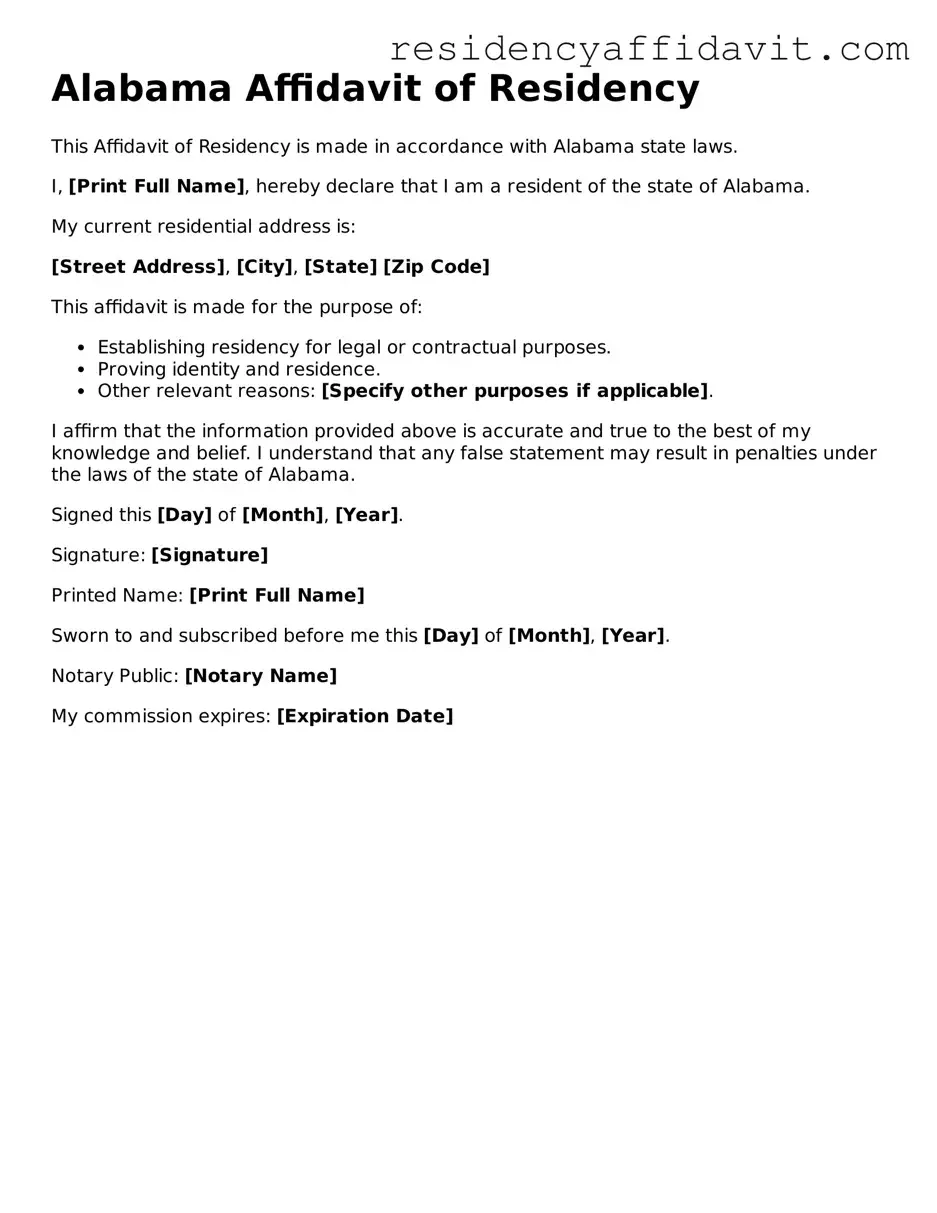Attorney-Approved Affidavit of Residency Document for Alabama
The Alabama Affidavit of Residency form is a legal document used to confirm an individual's residence within the state of Alabama. This form serves as a declaration that verifies where a person lives, often required for various legal and administrative purposes. Understanding the details and requirements of this affidavit is essential for residents needing to establish their residency status.
Get My Affidavit of Residency Online

Attorney-Approved Affidavit of Residency Document for Alabama
Get My Affidavit of Residency Online
Your form progress is not saved
Edit and save Affidavit of Residency online, ready to download.
Get My Affidavit of Residency Online
or
➤ Affidavit of Residency PDF Form
